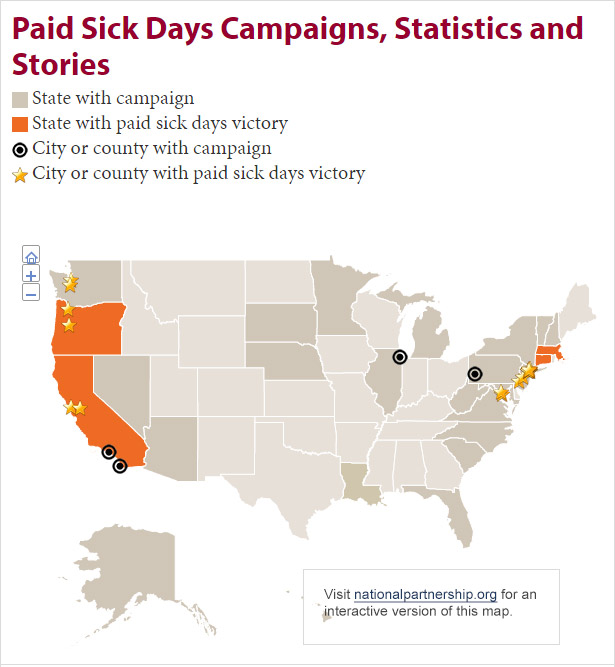Secretary of Labor Thomas Perez recently called for a national policy on paid sick days. About two-fifths of private-industry workers in the United States don’t get paid sick leave.
As the map below from the National Partnership for Women & Families shows, wide swaths of the country do not have guaranteed sick leave for workers. Employees in these areas of the country may have to choose between going to work sick or staying home and losing a paycheck.
Some stakeholders assert that paying workers to stay home when ill can help reduce the spread of contagions at work and improve productivity. Unfortunately, workers in only 24 jurisdictions in this country have guaranteed paid sick leave, according to the National Partnership for Women & Families. That includes just four states, 19 cities and one county.
“It is absolutely unacceptable that so many hardworking people risk grave financial hardship if they or a family member get the flu, strep throat or another common illness, and that is because they cannot earn basic paid sick days, even after years at their jobs,” Debra L. Ness, president of the National Partnership for Women & Families, said in a press release.
Certainly several employers throughout the country provide their workers with paid sick days without the government mandating it. But private employers of 44 million workers do not. Should paid sick leave be a universal right for all employees? Let us know in the comments below.

The opinions expressed in "On Safety" do not necessarily reflect those of the National Safety Council or affiliated local Chapters.

